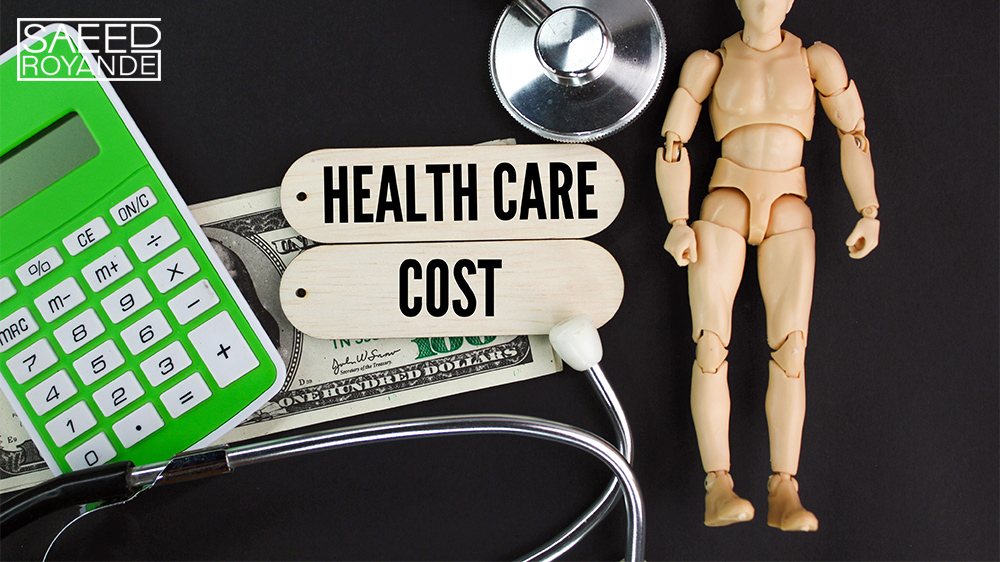Nowadays, mental healthcare is important for more than just people’s physical health. Untreated mental diseases and insufficient access to care have significant financial and societal consequences, making the economics of mental healthcare an urgent issue.
The Cost of Mental Healthcare: A Burden on Individuals and Society
Healthcare for mental health issues is expensive, which affects individuals and society as a whole. A person’s ability to go about their everyday life, be productive, and enjoy life in general can be severely impaired by mental health conditions like schizophrenia, bipolar disorder, depression, and anxiety. Therapy, medicine, and hospitalization are common components of long-term treatment plans for certain illnesses, and they can add up quickly.
The cost of mental healthcare can sometimes be too much for individuals to bear. When insurance does not cover mental health disorders sufficiently or has restricted coverage, many people struggle to afford the therapies they need. Individuals and their families may find themselves financially burdened as the costs of therapy sessions, prescription co-pays, and other associated services can mount up rapidly. Financial constraints might cause some persons to postpone or skip therapy altogether, which can worsen their disease and have far-reaching implications. Mental healthcare has a huge monetary effect on society as a whole. Decreased productivity, increased absenteeism, and lower job involvement can be caused by untreated or poorly managed mental health disorders. Studies show that companies lose billions of dollars annually due to mental health problems due to healthcare costs and missed productivity.

Pills and stethoscope on one hundred dollar bills
Understanding the Economic Impact of Mental Illness
There are several approaches to looking at the monetary effects of mental illness. The first is the financial toll that mental health diagnosis, treatment, and management can take on the healthcare system. All of these things, like therapy, prescriptions, hospital stays, and doctor visits, add up. Healthcare spending is affected by the demand for and costs of mental health services.
The second point is that mental illness significantly reduces productivity in the workplace. Reduced concentration, absenteeism, and job performance are possible outcomes for individuals whose mental health disorders are either untreated or inadequately managed. Employers may incur monetary losses as a consequence of decreased production caused by these variables. Unemployment and disabilities caused by mental health issues can also raise a person’s need for social assistance programs like disability and unemployment insurance.
Additionally, loved ones and caregivers of the person with mental illness are also impacted. Both direct and indirect expenditures, such as medical bills and time spent caring for a loved one or finding a new job to fit their demands, add up to a significant financial burden on families.
The Economics of Mental Healthcare: Challenges and Opportunities
Improving mental health services is fraught with peril and opportunity due to the economics of mental healthcare. The astronomical price tag of mental healthcare is one of the major obstacles. It can be a challenging challenge to fund mental health treatments while also making sure they are affordable for individuals. People without sufficient insurance or financial means may not be able to afford many mental health treatments, such as medication and therapy sessions. Inefficiencies and increased expenses may also result from mental health care being disjointed and providers not working together. Nevertheless, these difficulties also present chances for growth. A potential avenue for improvement is the merging of general care and mental health services. Comprehensive and coordinated care for patients can be achieved by integrating mental health services into primary care settings. This could result in better outcomes while also lowering costs. The stigma that people with mental health issues face when they seek treatment can be reduced by the integration of mental healthcare into current healthcare systems.

Paper money a model of a person a stethoscope
The Financial Benefits of Prevention and Early Intervention
Preventative measures and early intervention provide substantial monetary advantages in mental healthcare. Here are a few important elements that emphasize the benefits:
- Cost savings: Spending now on preventive and early intervention can save a lot of money later on because less extensive and expensive therapies will be needed.
- Improved treatment outcomes: Better treatment outcomes can be achieved by early detection and timely intervention of mental health disorders, which in turn improves general well-being and reduces healthcare expenses.
- Less healthcare utilization: People with mental health difficulties may need less expensive healthcare services like hospitalizations and trips to the emergency department if they get help early on.
- Increased workforce productivity: Reducing absenteeism, presenteeism (low productivity while at work), and work-related impairment, as well as improving individuals’ ability to manage their mental health through prevention and early intervention, can increase worker productivity. Employers see less financial loss and increased labor productivity as a result.
- Lower societal burden: Decreased reliance on social welfare programs and lower criminal justice expenditures linked with untreated mental disorders are two examples of the larger societal burdens that might be alleviated if mental health issues can remain under control.
- Improving quality of life: People’s quality of life can be greatly enhanced via prevention and early intervention, which in turn allows them to lead more fulfilling and productive lives. Positive economic ripple effects are felt by individuals and society as a whole as a result of this.
- Return on investment (ROI): Multiple researches have demonstrated a favorable ROI linked to mental health prevention and early intervention. The initial investment in preventative and early intervention programs can be more than covered by the economic benefits, which include higher productivity and lower healthcare expenses.
- Reduced stigma and increased help-seeking behavior: We can build a culture that promotes help-seeking behavior, decreases the stigma around mental health, and creates a more supportive atmosphere by supporting prevention and early intervention. Mental health issues may then be better detected and treated at an earlier stage.
- Long-term economic sustainability: A more long-term and cost-effective mental healthcare system is the aim, and investing in preventive and early intervention is in line with this goal. These tactics, if given top priority, will help alleviate the strain on healthcare systems and society at large while simultaneously addressing mental health issues.

Healthcare costs refer to the expenses associated
The Impact of Mental Healthcare on Entrepreneurial Success
The dynamic and demanding nature of entrepreneurship necessitates the ability to handle high levels of stress, uncertainty, and risk. An entrepreneur’s mental health is vital to their capacity to handle these demands and succeed in their endeavors.
To start, an entrepreneur’s general health and ability to bounce back from setbacks can be improved with the help of mental healthcare. Entrepreneurs can build resilience to stress, failure, and the demands of running a business by establishing and maintaining a solid psychological foundation through effective mental health management. By taking care of their mental health, entrepreneurs may boost their emotional health, make better decisions, and have an optimistic outlook that encourages innovation, creativity, and adaptability.
Second, the efficiency and effectiveness of an entrepreneur’s work may be affected by mental healthcare. A business owner’s capacity to concentrate, think rationally, and make good judgments can be negatively impacted by untreated mental health issues including anxiety, despair, or exhaustion. To better handle these problems and achieve better business success, entrepreneurs should seek appropriate support and treatment through mental healthcare.
Additionally, access to mental healthcare can help entrepreneurs maintain their careers over the long haul. Entrepreneurs may protect their companies from the damaging effects of mental health crises, emotional weariness, and chronic stress by making mental health a top priority. Longevity in the entrepreneurial journey can be enhanced by entrepreneurs who engage in self-care practices, seek therapy or counseling, and employ stress-reduction measures. These actions assist entrepreneurs in maintaining a healthy work-life balance and prevent burnout.

Health care costs
The Hidden Costs of Ignoring Mental Health in the Workplace
There may be unintended consequences for both workers and businesses if mental health is disregarded on the job. Some important points that show the hidden costs are as follows:
Reduced productivity:
Ignoring mental health concerns can lead to a decline in productivity and performance among employees. Problems with focus, judgment, and productivity on the work might be a symptom of mental health issues like worry, sadness, and stress. As a result, output drops and, worse, the quality of the job can suffer.
Increased absenteeism and presenteeism:
Ignoring mental health issues can lead to higher rates of absenteeism, as individuals regularly miss work because of mental health-related issues. This can result in both increased presenteeism and absenteeism. In addition, presenteeism happens when workers with mental health issues still show up to work, but they are far less productive than usual. A decrease in productivity and efficiency at work may result from this.
Higher healthcare costs:
Healthcare expenditures can rise: Untreated mental health issues can add to the expense of healthcare. There is strong evidence that people whose mental health disorders go untreated are more likely to experience physical health complications. Medical costs for both employees and employers rise as a result of increased healthcare consumption, including prescription drug use, hospitalizations, and doctor visits.

Concepts of psychiatrists and counseling on mental
Employee turnover and recruitment costs:
Ignoring mental health in the workplace can lead to increased employee turnover rates, which in turn increases recruitment costs. Staff morale plummets and work satisfaction skyrockets when they feel their mental health isn’t being adequately supported on the job. It may be rather costly for firms to hire new personnel, get them up to speed, and teach them on the job.
Impact on workplace culture and morale:
Workplace morale and culture can take a hit when employers turn a blind eye to employees’ mental health issues. Employees are more likely to experience stress, disengagement, and discontent when they perceive a lack of support for their mental health. Because of this, cooperation, collaboration, and the general effectiveness of the organization can be affected.
Legal and regulatory implications:
Neglecting mental health in the workplace may lead to problems with the law and regulations. Taking care of employee’s mental health is part of an organization’s duty to create a healthy and safe workplace. Legal actions including workplace harassment, discrimination, or inability to meet mental health requirements of employees may result from noncompliance with this requirement.


